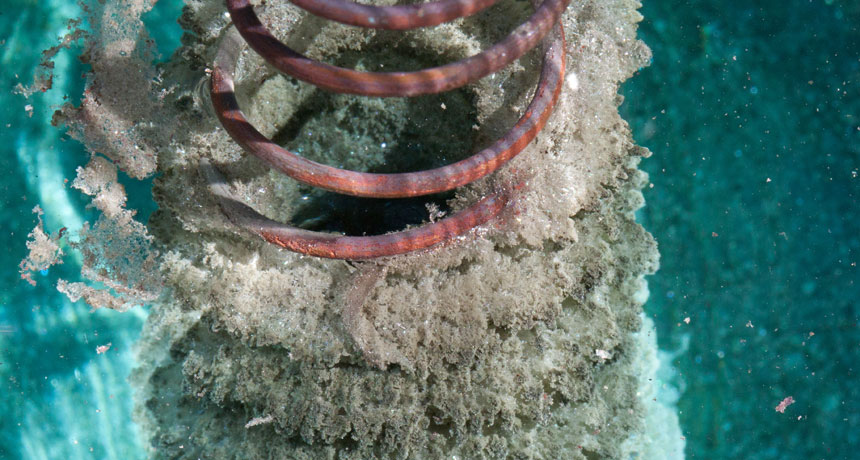Scientists Say: Precipitation
In chemistry, this word describes a solid coming out of a liquid

When a copper wire is placed in a silver solution, a chemical reaction takes place. The silver precipitates out and sticks to the wire.
Toby Hudson/Wikimedia Commons/( CC BY-SA 3.0)







